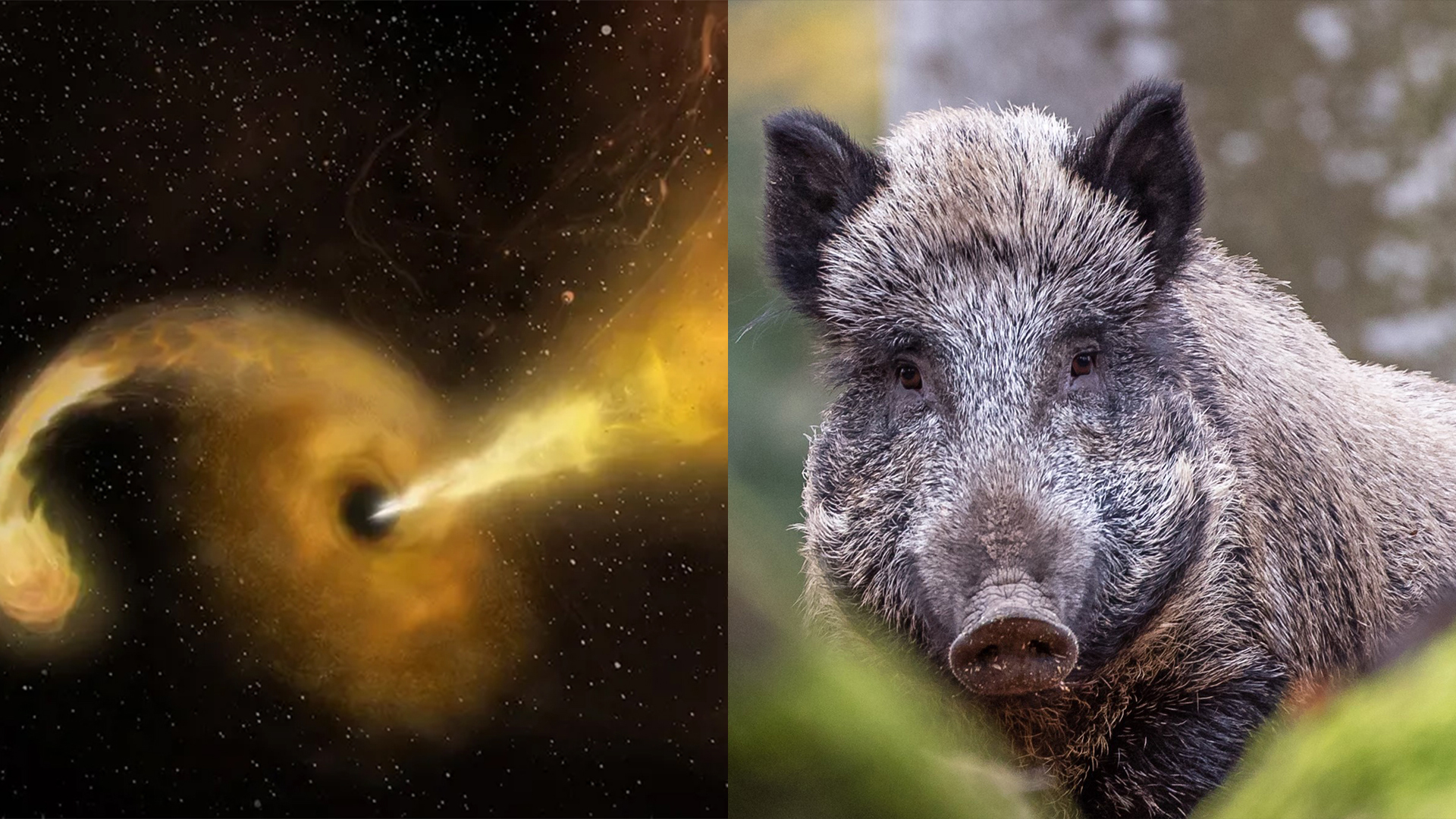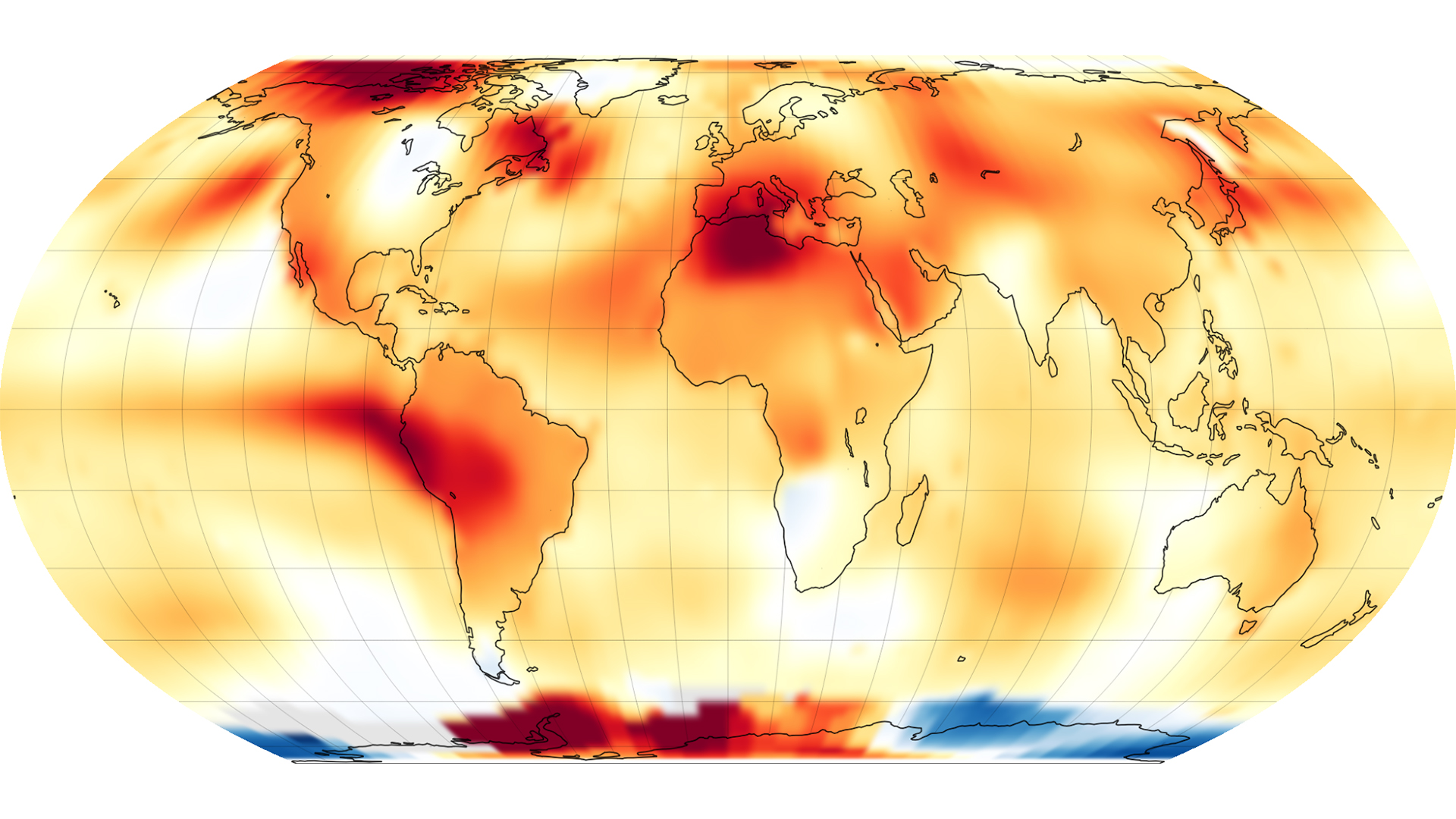Science news this week: Burping black holes and radioactive wild boars
Sept. 8, 2023: Our weekly roundup of the latest science in the news, as well as a few fascinating articles to keep you entertained over the weekend.

Get the world’s most fascinating discoveries delivered straight to your inbox.
You are now subscribed
Your newsletter sign-up was successful
Want to add more newsletters?

Delivered Daily
Daily Newsletter
Sign up for the latest discoveries, groundbreaking research and fascinating breakthroughs that impact you and the wider world direct to your inbox.

Once a week
Life's Little Mysteries
Feed your curiosity with an exclusive mystery every week, solved with science and delivered direct to your inbox before it's seen anywhere else.

Once a week
How It Works
Sign up to our free science & technology newsletter for your weekly fix of fascinating articles, quick quizzes, amazing images, and more

Delivered daily
Space.com Newsletter
Breaking space news, the latest updates on rocket launches, skywatching events and more!

Once a month
Watch This Space
Sign up to our monthly entertainment newsletter to keep up with all our coverage of the latest sci-fi and space movies, tv shows, games and books.

Once a week
Night Sky This Week
Discover this week's must-see night sky events, moon phases, and stunning astrophotos. Sign up for our skywatching newsletter and explore the universe with us!
Join the club
Get full access to premium articles, exclusive features and a growing list of member rewards.
This week in science news we’ve seen black holes burping up stars, radioactive Bavarian wild boars and a rather ingenious use for spent coffee grounds.
So, what about those burping black holes? Astronomers have discovered that much like humans — who are prone to a little gaseous emission after a hearty meal — black holes emit a large amount of stellar remains years after devouring stars, and it could be affecting up to 50% of them. And if the universe wasn’t messy enough already, scientists have identified a new class of cosmic explosion brighter than 100 billion suns. Closer to Earth, there are claims that NASA might have found alien life on Mars and then accidentally destroyed it, while in our skies we’ve witnessed a fireball meteor turning the sky green and an unusual lightning 'sprite' — one of nature's least understood phenomena.
From up in the skies to deep underground, a 16-year-old student has discovered a 34 million-year-old whale skull in an Alabama timber farm during a summer school project — that’s going to be hard to beat at show and tell. Other treasures brought to the surface this week include four Roman swords, ancient Greek figurines thought to be offerings to Poseiden, a Bronze Age girl buried with 150 animal ankle bones, and a mysterious golden orb that has left scientists baffled as to what it could be.
In health news, the Centers for Disease Control and Prevention issued a warning after five people were killed by 'flesh-eating' bacteria; we explained everything you need to know about this year’s flu shot; and we saw how DNA's 'topography' influences where cancer-causing mutations appear.
For those of us who like strong coffee, it turns out those spent grounds could have an unexpected second life — making concrete up to 30% stronger, while elsewhere at the breakfast table we discovered what gives pink pineapples their distinctive color. If the thought of genetically modified fruit turns your stomach, spare a thought for German wild boars, whose penchant for truffles means their levels of radioactivity are far higher than other animals in the area — now we know why.
And finally, continuing with the theme of food-focused science news, we couldn't let you go without knowing that scientists have finally figured out why cats are obsessed with tuna.
Picture of the week

This glorious silhouette, published Sept. 4, 2023, shows the Extremely Large Telescope (ELT) being built in the Atacama Desert in Chile. When it begins operations in 2028, it will be the world's largest telescope and will enable astronomers to search other star systems for habitable exoplanets, probe dark matter and dark energy, study black holes, and see the very first galaxies back to just 380,000 years after the Big Bang.
Get the world’s most fascinating discoveries delivered straight to your inbox.
The picture also shows just how active the sun is right now, with small (yet actually planet-size) sunspots on its surface. It's thought that sunspots will continue to increase as the sun nears solar maximum, which could arrive as soon as the end of this year.
Weekend reading
- If Superman really does fly "faster than a speeding bullet," how fast is that exactly?
- History is peppered with times when we've pursued questionable interventions in nature that have had unintended — and sometimes disastrous — consequences.
- Can you guess who this hairy-chested crab species was named after?
- If you want your budding twitchers to be better bird spotters, we’ve picked out the best binoculars for kids.
- Could an impending rise in solar storms cause more whales to strand?
- Fearless astronauts push the limits in these epic spacewalk photos.
- We currently know of 5,502 exoplanets beyond the solar system, but how many planets are there in the universe?
And finally...

The summer has been characterized by relentless heat waves around the world. Now, data released this week by the World Meteorological Organization (WMO) confirms that Earth just had its hottest summer in recorded history — yet another sign that climate change is happening.
Climate breakdown has begun.
U.N. secretary-general António Guterres
"Our planet has just endured a season of simmering — the hottest summer on record," U.N. secretary-general António Guterres said in a statement. "Climate breakdown has begun."
Global sea-surface temperatures have been especially high over the past five months and remained at record-high levels throughout April, May, June and July 2023. In August 2023, the sea-surface temperature was 69.76 degrees Fahrenheit (20.98 degrees Celsius), surpassing the previous March 2016 heat record every single day that month.
And this is all happening before we see the full impact of this year's El Niño weather event, which itself is expected to see ocean temperatures "substantially exceed" those recorded during the last strong event in early 2016.

Alexander McNamara is the Editor-in-Chief at Live Science, and has more than 15 years’ experience in publishing at digital titles. In 2024 he was shortlisted for Editor of the Year at the Association of British Science Writers awards for his work at Live Science. He has previously worked at New Scientist and BBC Science Focus.
 Live Science Plus
Live Science Plus










